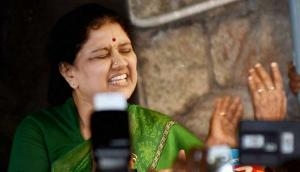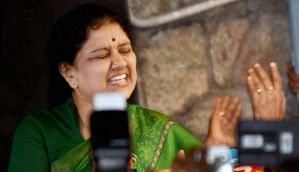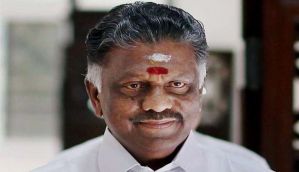Indonesia: At least 54 killed as 6.5 magnitude earthquake rocks Aceh province
At least 25 people died and hundreds were left injured after a 6.5 magnitude earthquake shook Aceh province on Indonesia's Sumatra island on 7 December.
The quake struck Pidie Jaya district at dawn, even as some in the predominantly Muslim region prepared for morning prayers.
According to media reports, mosques and shops were razed in the small town of Meureudu.
Andaman: Indian Navy pressed into action as over 800 tourists stranded on Havelock island
Andaman and Nicobar's Havelock Island was struck by heavy rainfall and stormy winds late on 6 December, leaving more than 800 tourists stranded with almost no network connectivity. The Indian Navy has been pushed into rescue action, to evacuate the stranded tourists.
Continuous heavy rainfall in the area is, however, hampering the evacuation procedure, reports suggest.
Indian Navy ships Bitra, Bangaram, Kumbhir and LCU 38 were deployed into action from Port Blair after the civil administration at Havelock telephonically requested assistance in the evacuation procedure.
Delhi: 81 trains, 5 international flights delayed due to dense fog
At least 81 Delhi-bound trains have been delayed, 21 rescheduled and three cancelled due to dense fog in the national capital on 7 December.
Eight international flights were delayed, three diverted and five domestic flights were also delayed due to poor visibility.
However, the Delhi International Airport Limited (DIAL) had yesterday announced its preparedness in tackling fog at the IGI airport.
Watch: ISRO successfully launches PSLV-C36 carrying Resourcesat-2A
The Indian Space Research Organisation (ISRO) on 7 December successfully launched its PSLV C36 Resource Sat-2A from the Satish Dhawan Space Centre in Sriharikota.
The satellite is intended to continue the remote sensing data services to global users. It will carry similar payloads as carried by its predecessors Resourcesat-1 and Resourcesat-2.
The PSLV C36 is the 38th flight of ISRO's Polar Satellite Launch Vehicle. It will place the 1235 kilogram Resourcesat-2A into an 817 kilometre polar Sun Synchronous Orbit PSLV which has emerged as the workhorse launch vehicle of ISRO offered for launching satellites for international customers.
New Indian and British currency aside, here's hoping for space coins
To mark the 50th anniversary of Apollo moon landing, the US House of Representatives passed a bill to issue a special commemorate coin. The bill instructs the treasury to create a coin that will "closely resemble the visor of the astronaut's helmet of the time."
There will be a contest on the design of this coin. The only hurdle for these space coins to take shape is a unanimous approve vote from the Senate. Post this, then President Donald Trump will make it official.
Google to be run on 100% renewable energy by 2017
In super super green news, Google has announced that it will be powered entirely by renewable energy - data centres, offices and 60,000 staff et al - by as soon as 2017.
Calling this a "landmark moment" the internet giant has already established itself as the "world's biggest corporate buyer of renewable electricity" by buying 44% of its power from solar and wind farms. While they're headed towards the 100% mark, they haven't ruled out nuclear power either.
"We are convinced this is good for business, this is not about greenwashing. This is about locking in prices for us in the long term. Increasingly, renewable energy is the lowest cost option," said Marc Oman, EU energy lead at Google told The Guardian. "Our founders are convinced climate change is a real, immediate threat, so we have to do our part."
C-section births are changing how we evolve
There's a minor alteration in the evolution of womankind due to their preferred birthing choice.
Caesarean sections or C-sections have become commonplace over the past few decades, and according to a new study, this has resulted in narrower pelvis sizes among women. Ultimately, it means the requirement of more C-sections as these women, when mothers, cannot give birth naturally.
The number of women who couldn't in the 1960s was 30 in 1000. Today it's 36 in 1000.






![BJP's Kapil Mishra recreates Shankar Mahadevan’s ‘Breathless’ song to highlight Delhi pollution [WATCH] BJP's Kapil Mishra recreates Shankar Mahadevan’s ‘Breathless’ song to highlight Delhi pollution [WATCH]](https://images.catchnews.com/upload/2022/11/03/kapil-mishra_240884_300x172.png)

![Anupam Kher shares pictures of his toned body on 67th birthday [MUST SEE] Anupam Kher shares pictures of his toned body on 67th birthday [MUST SEE]](https://images.catchnews.com/upload/2022/03/07/Anupam_kher_231145_300x172.jpg)






